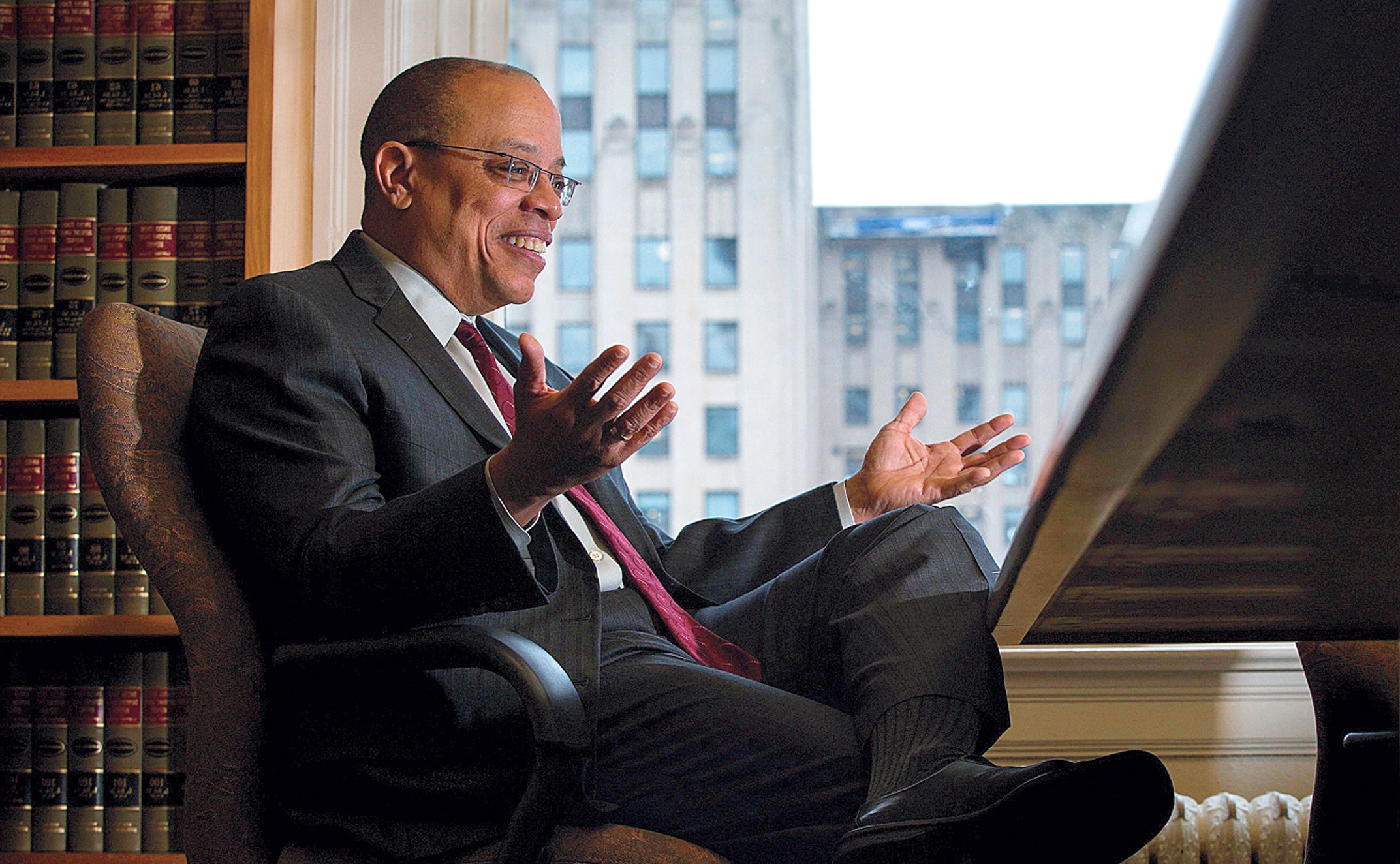Jeff Robinson ’81 worked as a Seattle criminal defense lawyer for 34 years—a span of time that, he notes, “basically coincided with the largest increase in our incarcerated population in the history of the United States.” Now, as the newly appointed director of the ACLU’s Center for Justice—a job previously held by Vanita Gupta, the Justice Department’s top civil rights lawyer—he will be tackling that metastasis head-on.
The 59-year-old’s passion for criminal defense ignited after he attended, at age 11, a march led by Dr. Martin Luther King Jr.—just a week before his assassination—in Robinson’s hometown of Memphis, Tennessee. The march “ended in violence,” and Robinson’s father—a school principal and lifelong educator who later moved the family to a white area and sat in the driveway with a shotgun across his lap for several nights to stare down hostile neighbors—took him to court to see the arrested marchers’ hearings. “I saw these guys called criminal defense lawyers who seemed to come out of nowhere, and they were making these arguments, and saying how the police were wrong for what they did,” Robinson recalls. “And I came out of the courtroom asking, Who are those guys, and how do you be one of them?”
Robinson never wavered. He came to HLS set on criminal defense, and accepted an offer after his 2L summer to work as a King County public defender in Seattle. After five years there and another three as an assistant federal defender for the Western District of Washington, he entered private practice at Schroeter Goldmark & Bender, where he tried more than 15 civil cases but “99 percent” of his work was criminal defense. During those decades, America became the world’s most incarcerated nation, with just 5 percent of the earth’s population but 25 percent of its prisoners. And that incarceration boom, Robinson notes, has been far from colorblind.
“If a federal law-enforcement agent came and said, ‘I know that black people and white people smoke marijuana at about the same rate, and I know there are more white people than black people, so there’s many more white people smoking marijuana than black people, but I want to arrest black people at rates four to five times higher than white people, just so that we can get them into the criminal justice system,’ that person would be rejected in every state in the country,” Robinson observes. “But that’s exactly what we’ve done.”
At the ACLU, which he joined in September, Robinson attacks not just the system’s “front end”—challenging everything from foundational “economic justice” to jurisdictions that force public defenders to field 700-plus cases per year—but also how people are treated in prison, and what opportunities are available upon release. “The majority of people who go to prison are coming out,” Robinson points out. “So, how would you like for them to have been treated in prison when that happens? Would you like them to have been in a system where they were abused, given no education, physically and mentally terrorized—and then the doors open and it’s ‘Good luck’? Or would you like to see somebody who has been treated humanely and with respect and who actually now has a chance to improve himself by coming back into the community with a chance to be a success?”
“That seems to me a very simple question with a very simple answer,” Robinson says. “But we don’t behave like it is.”
Robinson hopes to help change the policies with which America answers that question through a combination of litigation, advocacy and education. While acknowledging that people should expect plenty of the first two—“The ACLU has never been afraid to litigate our cases,” he says with a smile—he seems especially excited about the new job’s educational opportunities.
“These are problems that we can solve,” Robinson says of the panoply of wrongs that attend American mass incarceration. “It’s just going to take getting uncomfortable enough.”
“You know, if I put enough itch powder on your arm, at some point you will scratch it,” he continues. “And so that may be part of the nature of my job: to go around the country with a big old can of itch powder, and keep throwing it on people until they’re ready to start scratching.”
